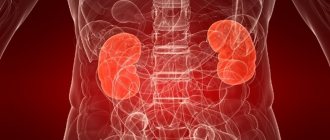Symptoms of cystitis in pregnant women appear quite often. This disease most often occurs as a result of the penetration of pathogenic microflora into the inner lining of the bladder with the subsequent development of an inflammatory process. How does the disease manifest itself and how to treat cystitis during pregnancy at home?
According to statistics, about 10% of expectant mothers suffer from manifestations of this disease, both in the early and late stages of pregnancy . At risk are those women who have previously suffered from a pathology such as cystitis. Most likely, this happens because the treatment of the disease was incorrect and the process has become chronic. At the same time, the development of inflammation in the bladder during pregnancy cannot be ruled out as a primary process, since there are many reasons that provoke this phenomenon.
Causes of cystitis in pregnant women
The root causes of bladder inflammation may be the following:
- Typically, women manage to catch such a disease in the first trimester of pregnancy, when their immune system is weakened and depressed, and their hormonal levels undergo changes. In such a situation, various microorganisms rapidly multiply and cause inflammation.
- The most common is infectious cystitis, which is caused by various bacteria. It is easy to catch such a disease; it is enough to maintain poor personal hygiene.
- Rarely, but still occur, non-infectious types of cystitis. These include: a dosage form of the disease based on taking certain drugs; allergic cystitis caused by hypersensitivity to any products; thermal cystitis, which occurs due to exposure of the urinary mucosa to hot liquids.
- If the expectant mother suffered from a chronic form of cystitis before becoming pregnant, then most likely during the period of bearing the baby, an exacerbation of the disease will occur. This is especially true in the early stages.
What to do if you develop signs of bladder inflammation
The appearance of signs of cystitis during pregnancy becomes an unexpected and very unpleasant surprise for a woman. Cutting pain above the pubis, frequent and painful urination, which makes it impossible to do household and social activities, increased body temperature, weakness, headaches - all these symptoms clearly indicate damage to the urinary system.
Increased body temperature is a sign of infectious pathology
Enduring pain and waiting for the body to cope with the inflammatory process is not an option. After all, the infection can spread not only to the mucous membrane of the urethra and cause the development of urethritis, but also up the ureters, reaching the kidneys. In these cases, a serious complication of cystitis appears - pyelonephritis, inflammation of the kidney tissue, with far-reaching negative consequences.
This is why cystitis during pregnancy is so dangerous, the treatment of which should not be left to chance. You should not listen to the advice of friends, family or neighbors if they advise you to just lie down, hold a heating pad on your stomach, drink diuretic and anti-inflammatory herbs. Treatment of cystitis during pregnancy is the complex use of various methods and means, with strict consideration of both the timing and characteristics of the course of gestation, and the background state of the female body.
Only a specialist, and not the woman herself or her friends, can decide how to treat cystitis during pregnancy, create a competent and effective treatment regimen that is safe for the fetus, and prevent the occurrence of complications and the transition of acute inflammation to a chronic form. Therefore, as soon as a woman begins to feel signs of bladder problems, she should immediately seek medical help.
Pregnancy requires very careful use of medications
The initial examination is carried out by an obstetrician-gynecologist who is seeing a pregnant woman, then she can be referred for a consultation with a urologist. After a thorough external examination, studying laboratory results and, possibly, ultrasound scan data, the doctor selects the optimal medications and other therapeutic agents.
Symptoms of cystitis
It is not difficult to recognize the disease. It is accompanied by extremely unpleasant symptoms:
There is a sharp and frequent urge to go to the toilet. In this case, a small amount of urine is released, it is cloudy, with an unpleasant odor.
- There is a burning sensation when urinating;
- There is a feeling of discomfort in the pelvic area;
- Blood may be seen in the urine;
- Body temperature rises.
Finding any of the listed signs in yourself is a signal that you need to see a doctor immediately.
The danger of cystitis for pregnant women
Many women are seriously alarmed by the question of whether cystitis can affect pregnancy, and if so, how.
In fact, such a disease really poses a certain danger for pregnant women. And only a timely contact with a specialist will be the key to avoiding negative consequences. Under no circumstances should you self-medicate or ignore the disease. Otherwise, there is a high probability of a serious complication - kidney infection. Microorganisms can cause significant harm to them.
An unpleasant illness can also negatively affect the fetus. There is a possibility of premature birth of a child who is underweight.
Treatment of cystitis in pregnant women with medications
If signs of the disease are detected, you should immediately consult a doctor. He will order a urine test, which will help make the correct diagnosis. Treatment of the disease is selected taking into account the severity of the disease and the timing of pregnancy.
The doctor may prescribe antibiotics. Most women are wary of such drugs, fearing for the health of their unborn child. However, modern medicine has medications that are effective and, at the same time, safe for the baby.
If the use of antibiotics does not lead to the expected result, the doctor may prescribe suppressive therapy, carried out until the birth and another 2 weeks after it. This method helps to avoid exacerbation of diseases and possible consequences.
A timely visit to the doctor, treatment using adequate measures will quickly put the bladder in order and the disease will recede.
Antibiotics during pregnancy
Such drugs during pregnancy cause changes in microflora, can provoke an allergic reaction, and negatively affect the development of the fetus. Therefore, a woman should not be allowed to take antibiotics during pregnancy according to the traditional dosage regimen.
At the same time, it is necessary to influence the pathogenic microflora, its spread contributes to infection of other organs of the urinary system. Therefore, we still take antibiotics during pregnancy, but in a minimal dosage.
Monural
A broad-spectrum drug is indispensable for infectious diseases of the genitourinary system; it is recognized as safe. It is taken for cystitis during pregnancy once, the dosage form is powder (3 g.) or granule. Helps destroy pathogenic bacteria and normalize the urinary system.
Amoxiclav
This drug is used somewhat less frequently for the treatment of cystitis, it contains amoxicillin, and is also a broad-spectrum antibiotic. Dosage form – tablets, suspensions, solutions for injections. The treatment regimen is established by the doctor, taking into account individual characteristics.
In some cases, instillation of the bladder and the introduction of antibiotics and antiseptic drugs into its cavity are required. Washing is carried out using a catheter, which is inserted into the urethra.
Treatment of cystitis in pregnant women using traditional methods
Traditional medicine has a lot of remedies that can get rid of an unpleasant illness.
Important! You should not resort to such methods without first consulting a doctor. After all, a number of procedures and medications are strictly prohibited during the period of bearing a baby. Remember, now you are responsible not only for yourself, and before starting treatment, you must weigh the expected result and possible harm to the unborn child.
The use of herbal infusions should be treated with caution. It is allowed to take drugs from chamomile, plantain, St. John's wort, horsetail, which have a diuretic effect and remove infection from the body.
For cystitis at home, you can resort to heating. For the procedure, ordinary table salt is suitable. After heating it well in a frying pan and pouring it into a special bag, it is applied to the lower abdomen. This procedure helps relieve symptoms.
How to get rid of cystitis at home
If you are faced with such an unpleasant phenomenon as too frequent but light urination, and at the same time you feel pain in the lower abdomen, you have a fever, and there is blood and pus in your urine - you have cystitis.
Cystitis is an insidious disease of the urinary system, which is more common in women than in men (this is explained by the large volume of the bladder and a much shorter urethra than in men). Therefore, rare bowel movements become one of the causes of cystitis, because when urinating, the causative agents of the disease are washed away - chlamydia, staphylococci, E. coli and other bacteria.
Cystitis can be caused by:
- hypothermia (especially in the autumn-spring period);
- infections of various origins;
- constipation;
- kidney diseases.
Of course, if cystitis occurs, you should consult a doctor for help. But what to do if the illness caught you on the weekend or away from the clinic? Is it possible to get rid of it at home?
How and with what to treat cystitis at home?
If symptoms of cystitis appear, in order to avoid complications that are common with this disease, proceed as follows.
What to do?
First of all, cancel everything, stay in bed and cover yourself with a warm blanket.
If there are no traces of blood in the urine (only in this case!), then you can use a heating pad or even two: place one on the stomach and the second in the perineum. The heating pad can be replaced with a plastic soda bottle (just don’t fill it with boiling water).
Follow your diet. At least for the duration of your illness, give up hot, salty and spicy foods, all kinds of smoked meats and marinades, and instead switch to dairy products, vegetables and fruits - in large quantities.
Drink at least 2-2.5 liters of fluid per day. Coffee, beer, alcoholic drinks - forget about all this until you recover, but tea with milk, various fruit drinks (cranberry, lingonberry, blueberry) - this is what will be just right now. The berries contain substances that prevent bacteria from entering the walls of the bladder. Herbal decoctions will give good results.
Take medications for cystitis according to the instructions.
Use traditional medicine recipes.
Perform a special exercise that will ease the course of the disease: as you inhale, draw in your stomach and perineum as much as possible, and as you exhale, relax your muscles.
Avoid sexual intercourse.
What medications should I take?
You can buy the following drugs at the pharmacy: Canephron, Cyston, Spasmocystenal (drops), Phytolysin (paste). If you have excruciating pain, you can drink No-shpa. All of them are made on the basis of herbs, so in emergency cases they can be drunk without a doctor’s prescription, but do not forget to follow the recommendations set out in the instructions.
You can also take Biseptol, Furadonin, Fitolysin, Monural, Nocilin (of course, not all at once!), although here you should consult a doctor.
Taking antibiotics on your own is not recommended.
What does traditional medicine recommend for cystitis?
If there is no pharmacy nearby, then use traditional medicine recipes. The centuries-old experience of healers and herbalists has accumulated a sufficient number of effective means of combating cystitis with the help of herbs, berries, roots and other drugs.
Decoctions
Various decoctions are widely used in the treatment of cystitis.
From herbs
Take 1 tsp. birch, dandelion, hydrangea leaves, pour 1 liter of boiling water and boil for a couple of minutes. Drink 2 glasses a day for a week.
From rosehip
Take 4 tbsp. chopped rosehip roots, pour 1 liter of water and boil for 15 minutes. Cool, strain and drink 4 times a day, 0.5 cups.
From flax seeds
Take 3 tbsp. flax seeds, pour into an enamel pan, pour in 1 liter of water, bring to a boil and cook for 5 minutes over low heat, remembering to stir constantly. Add 1 tbsp to the broth. honey. Cool, strain and drink completely within an hour.
From dill seeds
Grind 1 tsp in a coffee grinder. dill seeds, pour 1 cup of boiling water, let steep for 1 hour. You can drink without straining, but always on an empty stomach (for a week). This recipe will also help with excess weight.
Or another recipe from flax seeds, but here it is not necessary to grind them. Take 2 tbsp. seeds and pour 1 cup of boiling water, let it brew for 30 minutes. Drink quickly, in large sips, morning and evening - for a week. The pain will stop, and at the same time the nervous system will strengthen.
From aspen bark
The bark is collected in the spring from young tree branches. Take 1 tbsp. crushed aspen bark, add 0.5 liters of water and cook for 20 minutes. Strain and add boiled water so that the volume is 0.5 liters. Take half a glass 4 times a day, before meals.
Infusions
Along with decoctions, all kinds of infusions are also used.
From the collection of herbs
Take 1 tbsp. corn silk, bear's ears, St. John's wort. Brew the mixture in a thermos with 0.5 liters of boiling water and leave for several hours. Drink the tincture a few sips before each meal.
Another infusion. Take equal proportions of yarrow grass, birch buds, calamus root and bearberry leaves. 2 tbsp. Pour 2 liters of boiling water over this mixture and leave for 10-12 hours. Drink the infusion during the day in 6 doses. The course of treatment is 3 weeks.
And this infusion will help with urinary incontinence. Take centaury and St. John's wort in equal proportions and pour 1 tsp. mixture with 1 cup boiling water. Let it sit until it cools completely. Take the infusion 7 times a day before meals.
From bearberry
Pour 2 tbsp. herbs with 1.5 cups of boiling water, let it brew for 15 minutes, strain. Dilute 2 tbsp. This infusion in 0.5 glasses of water and take 30 minutes before meals - 2 times a day. Use the infusion for 2 days, then make a fresh one.
Sitz baths
Baths should be taken before bedtime, and the water temperature should not be too hot.
After taking any of the following baths, be sure to dress warmly (clothes can first be heated on a radiator or with an iron) and place a heating pad in the perineum.
Chamomile bath
Prepare a chamomile decoction (about a liter), strain it directly into the bath (the water should be moderately hot). Take a bath for 15 minutes.
Bath with pine needles
Brew 500 g of pine needles with boiling water, leave for about an hour. You don’t have to strain the broth, but take a bath directly with the needles. In a properly prepared infusion, they will not prickle - they will be soft, steam and settle to the bottom.
Herbal bath
Brew a collection of herbs - in equal parts (1 tablespoon per liter of water): chamomile, yarrow, St. John's wort. Let it brew until you get a strong infusion. Use this infusion to prepare a bath.
Steam bath
For this bath you will need a bucket or a night vase (you can take it from plastic so as not to get burned when you sit down). Take a handful of whole grain oats, pour boiling water over it and simmer for 5-10 minutes. Pour 1 cup of dry horsetail herb into the broth, cover with a lid and leave to simmer for another 3 minutes. Pour the broth into a bucket (“vase”) and sit down. Take a steam bath for 10-15 minutes while the broth in the container is hot.
Dry bath
This is the old country way. Prepare a clean, dry metal (enamel) bucket and cover its top with a cloth so that it is comfortable to sit on (or use a toilet stool). Prick a half (or two) red clay brick and place it in a bucket. Sprinkle dry chamomile on top, take off your underwear and sit on the bucket. Cover yourself with a blanket. Take such a bath while you feel the warmth from the brick.
Anti-inflammatory and diuretic drinks
After the bath, you can drink medicinal tea prepared from pharmaceutical preparations or from those herbs that you can find at home.
Lingonberry tea
Take equal parts of berries and lingonberry leaves (half a glass each), brew with 1 liter of boiling water, insulate the teapot and leave to steep for 20 minutes. Drink as regular tea, adding honey and lemon to taste.
Herbal tea
Brew tea from chamomile, sage, oregano, lingonberry leaf (you can add a slice of lemon or orange here). Let it brew.
Watermelon tea
Take a quarter of a small ripe watermelon, finely chop it along with the rind, put it in a saucepan, add 2 tbsp. sugar and 0.5 cups boiling water. Bring to a simmer over low heat and simmer until the crusts soften. Add 1 tbsp to the pan. dry green tea and pour in 0.5 liters of boiling water, close the lid and leave for 15-20 minutes. The drink is not only tasty, but also has excellent diuretic properties.
From what is always at home
If you don’t have any medicines or herbs at home, you can use what you have in the refrigerator or kitchen cabinet.
Soda
If you don't have herbs on hand, use regular baking soda. Dilute 1 tbsp in 1 liter of boiled water. soda Use this solution for oral administration: 1 tbsp. 3 times a day, as well as for douching.
Milk
Have you ever had to soar your feet? If you have cystitis, you should steam your feet in milk. Take 3 liters of milk and boil. Pour 0.5 liters of milk into a basin and place your feet in it. For the best effect, wrap yourself in a blanket (like a skirt). As the milk cools, add hot water until all 3 liters are in the basin. After soaking your feet in milk, immediately put on warm socks and go to bed. Do not pour out the milk, but put it in the refrigerator: it can be used for a second procedure. Usually after 2-3 such procedures there is no trace of cystitis left.
Acupressure
Another remedy that can be used either independently or in combination with other treatment methods.
Near the tragus of the ear (lower edges of the cheekbones) energy channels emerge from the bladder. If there is any infection in the body, these points react painfully to massage. Massage the points for 10 seconds, making 3 techniques.
Traditional methods of treatment will help you stop the development of the disease if cystitis occurs on weekends or holidays, or far from the nearest clinic (for example, in the country). However, it should be remembered that this is not a panacea, and if the disease has already become chronic, it is still better to treat it under the supervision of a doctor.
Be healthy!
Prevention of cystitis in expectant mothers
Compliance with a number of preventive measures can reduce the risk of developing cystitis in pregnant women.
- Following a diet that has nothing to do with losing weight. It is advisable to limit the consumption of salty and spicy foods, and exclude alcohol. Drinking an unlimited amount of coffee or tea may well provoke the onset of the disease.
- To avoid cystitis in pregnant women, it is advisable to urinate before and after sexual intercourse. This helps reduce the concentration of pathogens in the bladder.
- Proper intimate hygiene is very important. For example, it is recommended to wash only from front to back. You should use toilet paper in the same direction.
- Underwear should not be tight. It is better not to use synthetics, giving preference to cotton products.
- If you feel the urge to urinate, you should not endure it for a long time. Since pathogenic bacteria can be excreted from the body through urine, it is recommended to go to the toilet more often, every 2-3 hours.
When faced with the problem of bladder inflammation during pregnancy, you should not panic. Medical assistance provided on time will quickly relieve the disease and help eliminate the possibility of complications.
Preventive measures
Prevention of cystitis during pregnancy is a very important stage. As you know, the disease develops even in the absence of a direct source of infection. Cystitis is a female disease that only rarely occurs in men. Decent prevention allows you to avoid uncontrollable and irreversible consequences, as well as increase the chance of having a healthy and strong baby:
- Diet. The diet menu is completely different from the diet intended for people losing weight. A pregnant woman spends a lot of energy on the development of the fetus; relatively, the body requires constant replenishment of energy. Calorie content should be maintained, but at the same time, any salty food is excluded. It is undesirable to drink coffee, soda, and it is strictly forbidden to drink alcohol-containing products. It is recommended to replace black tea with green tea.
- Daily intimate hygiene should be maintained. The procedures are carried out twice a day - after waking up and before going to bed. The use of hygienic soap is allowed only in the evening. Washing is done from front to back.
- If you have cystitis, it is recommended to wear loose underwear (preferably shorts). The preferred material is cotton.
- It is necessary to avoid open wind, drafts and hypothermia of the feet.
By adhering to established prevention, you can save not only yourself, but also the baby in your stomach. Any delay in treatment will result in the girl and the unborn baby being at risk.











